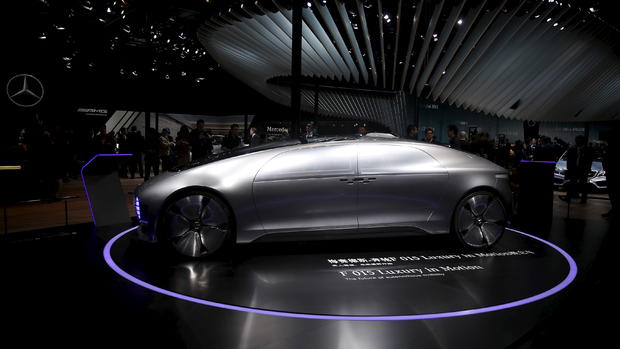Automakers feeling the pain of China slowdown
The auto sector has helped drive the U.S. economy forward in 2015, with the Big Three automakers enjoying strong sales even amid middling growth for the country as a whole.
But economic turbulence in China is weakening consumer demand for new wheels on the Mainland. That is hurting car manufacturers, which have invested billions of dollars in the People's Republic in hitching their prospects to the world's largest vehicle market.
For July, production and sales of passenger cars were down 11.6 percent and 6.6 percent, respectively, from the year-ago period, according the China Association of Automobile Manufacturers. Excluding SUVs, which continue to sell well, car production through the first seven months of the year fell over 7 percent, while sales declined nearly 8 percent.
China's demand for new cars will slow to 4.1 per cent through 2018 and contract further to 2.9 percent in annual growth until 2023, according to AlixPartners. The business advisory firm estimates that sales between January and July in China grew only 3.4 percent compared with a year ago.
Mark Wakefield, managing director at AlixPartners, said 2015 is is likely to be a downbeat year for automakers and car dealers, ending a strong run for the industry since the auto sector started recovering in 2009.
Research firm IHS Automotive predicts that car makers' plant utilization this year would fall to 65 percent, down from 70 percent in 2014 and a sign of weakening vehicle demand in the People's Republic.
Auto industry executives concede that expanding in China could be problematic as the country's growth gears down.
In a July earnings call, General Motors (GM) CEO Mary Barra told analysts that "we expect a more volatile market in China as growth moderates," while underlining that the auto giant continues to see the People's Republic as a vital market over the next decade. GM plans to invest $12 billion through 2017 to develop its manufacturing facilities in China
"We are well-positioned right now in that market, and we want to continue to be well positioned to capitalize on that growth," she said.
In the first half of 2015, GM sold 1.7 million vehicles in China, a record for the company. Sales of SUVs were especially brisk, jumping 83 percent, with demand strong for GM brands Buick, Cadillac and Baojun, a partnership with China's SAIC Motor.
Chinese passenger cars sales reached 13.8 million last year, surpassing U.S. sales for the second year in a row. AlixPartners firm projects that auto sales in China will hit 33.4 million annually through 2023, which would account for 30 percent of global auto sales.
Fiat Chrysler (FCAU) is also feeling the effects of China's economic slowdown. In the second quarter, the automaker's China sales fell 27 percent, with worldwide sales for the period sliding 20 percent. CEO Robert Palmer said in a July conference call that the company expects to cut vehicle prices in China by 5-6 percent, reflecting the software demand.
"It's clear we've seen a market slowdown in the industry" in China, said Ford (F) CEO Mark Fields this summer in discussing the company's financial performance.
Not surprisingly, he's not throwing in the towel. "This is the biggest market in the world right now," Fields said. "By our forecast, it's going to grow to about 30 million vehicles in the next 5 to 10 years. So we're still very bullish on China, but it's going to go through its fluctuations. And that's what happens in emerging markets."
